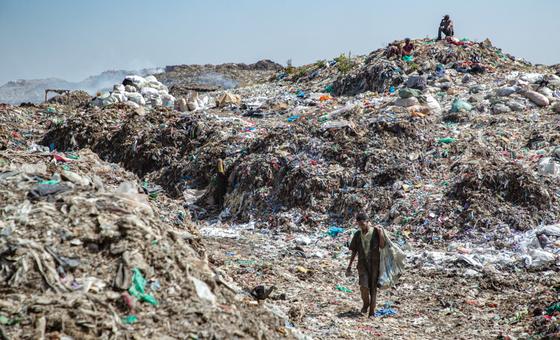Negotiators from around the world gathered in Nairobi, Kenya, on Monday for fresh talks over a landmark international treaty to combat plastic pollution.
The urgency of this effort is underscored by the ongoing global plastic pollution crisis, where approximately 430 million tonnes of plastic are produced annually.
Around two-thirds of it is just thrown away, harming both the environment and the food chain.
Convening for its third session, the Intergovernmental Negotiating Committee (INC-3) will focus on the so-called zero draft of the international legally binding instrument on plastic pollution, released earlier this year, with the goal of concluding negotiations by the end of 2024.
No to ‘throwaway economy’
According to the Executive Secretary of the INC Secretariat Jyoti Mathur-Filipp, the devastating impact of plastic pollution on ecosystems, climate, the economy, and human health, costs the planet between $300 and $600 billion per year.
Plastics production is expected to double in the next 20 years if no action is taken.
Organizers are demanding a transition from the “throwaway economy” to a “reuse economy”.
The INC-3 will feature 12 side events addressing various aspects of plastic pollution, including sustainable production and consumption, the shift to a ‘circular plastic’ approach, and more.
Officials are underscoring the need to reduce plastic production, eliminate single-use and short-lived plastic products, and switch to non-plastic substitutes.
Text on the table
At a press-conference ahead of this week’s intensive talks leading to what delegates hope will be a global binding agreement, the INC’s President Gustavo Meza-Cuadra Velasquez said: “We are entering a very important phase of our negotiations…For the first time we are entering a discussion with a text.”
The session will feed into another round of draft discussions scheduled for April 2024 in Canada.
As the international community grapples with the plastic pollution crisis, the outcome of INC-3 could be a significant step forward.
The Zero Draft text of the international legally binding instrument, prepared by the Chair of the INC, with the support of the INC Secretariat, is now available in all six UN official languages.

